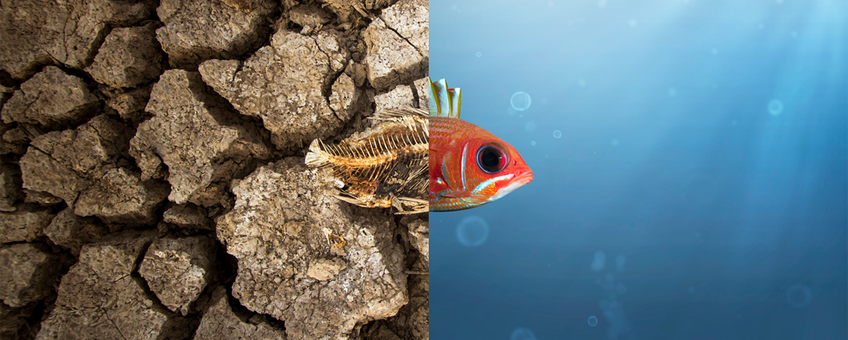
Together we can build resilience against climate change
Dutch Caribbean Nature Alliance (DCNA)The Dutch Caribbean Nature Alliance (DCNA) released a special edition of their free digital newsletter BioNews highlighting the challenges facing the Dutch Caribbean in the fight against climate change. Using internationally accepted climate change predictions and (research) reports, impacts both above and below water have been defined for all six islands, stressing the need for immediate action to build resilience against the effects of climate change. Loss of nature has far reaching negative consequences for the local population since nature serves as both one of the most important sources of income and offers protection against extreme weather conditions.
Climate change related drivers of impact
High levels of carbon emission are the main drivers of global warming, and experts predict that if gone unchecked global warming will have catastrophic effects. For small island nations, especially those within the Caribbean, this is of dire importance. With even small increases in temperatures, drastic changes can be felt within this region. Scarcity of fresh water and intensifying of droughts and storms are some of the most pressing concerns within the Caribbean.

Importance of nature
Effects of climate changes such as warmer and acidic seawater (coral bleaching) and extreme weather conditions (longer periods of drought and more powerful hurricanes) can damage ecosystems such as coral reefs, mangrove forests, seagrass fields, tropical rainforests and caves. The deterioration of the environmental conditions has, in addition to negative consequences for the number of plant and animal species, major economic consequences. The ecosystems serve as important tourist attractions. Less nature means fewer tourists, resulting in a decrease in employment and income. In addition, the loss of coral reefs, mangroves and vegetation will provide less (coastal) protection in extreme weather conditions. Examples of this were seen after hurricanes Irma and Maria, which caused major damage in the windward islands in 2017.
Climate proofing
In the Dutch Caribbean, we cannot influence global warming, but we can build resilience against the effects of climate change. We can reduce our local stressors so our ecosystems are better able to withstand the effects of climate change. Climate proofing is the concept that through financial investment and action, changes can be made to make our environment more resilient to climate change. When done properly, these changes will not only make these islands more resilient, but will provide a quality of life increase for residents and visitors alike, further increasing economic and social benefits to the islands.
Key environmental policy considerations
The most effective ways for governments to mitigate losses due to climate change in the Dutch Caribbean would be to increase efforts in land-use planning and zoning (for example: limitations on coastal development and increase in reforestation) as well as terrestrial and marine conservation. Other urgent actions should include limiting overgrazing by free roaming animals and improve waste water treatment and waste management.
The Ministries of Agriculture, Nature and Food Quality, Infrastructure and Water Management and Interior and Kingdom relations of The Netherlands recently published a Nature and Environment Policy Plan for the Caribbean Netherlands (2020-2030). This report specifically calls out the need to build resilience against the effects of climate change. Currently the BES islands are working on island specific implementation agendas.

How YOU can help
There are many daily changes we can make to help build a healthier, more resilient environment around us. These include: minimizing your carbon footprint (for example turn off lights before leaving the house), minimizing waste, minimizing physical interactions with nature, gardening, choosing sustainable seafood and fishing practices, coral friendly sunscreen (without oxybenzone) or wearing protective clothing instead, and getting involved with for example participating in beach clean-ups, reforestation and coral restoration projects.
Each Dutch Caribbean island offers unique opportunities to get involved, so make sure to check in with the local nature conservation organizations to see what opportunities are available near you. Respect nature and check out the local nature conservation rules and regulations and do not forget to pay your nature fee. Together we can help build resilience and strength within our nature resources to minimize the effects of climate change.
Receive nature news
Stay updated about nature research and monitoring projects in the Dutch Caribbean through the Dutch Caribbean Nature Alliance’s (DCNA) digital newsletter 'BioNews'. Sign-up here, it’s free.
More information
Dutch Caribbean Nature Alliance- BioNews special 2020- Climate change Effects & Recommendations
Text: Dutch Caribbean Nature Alliance
Photos: Hans Leijnse; Dolfi Debrot
